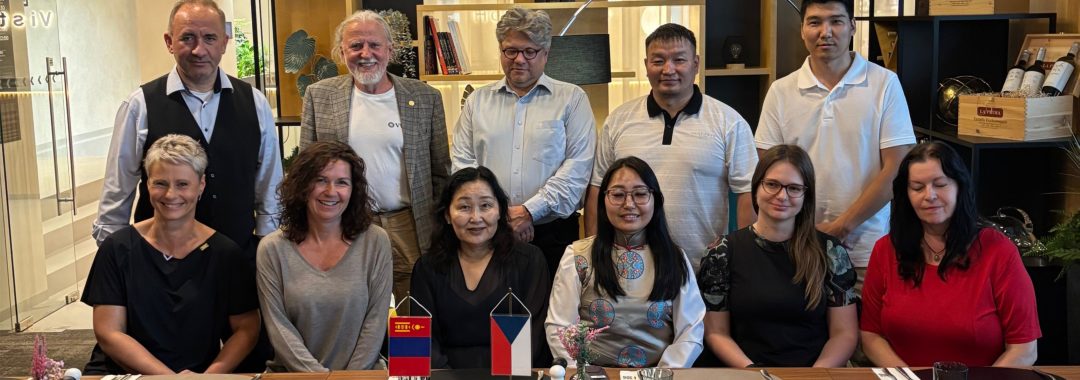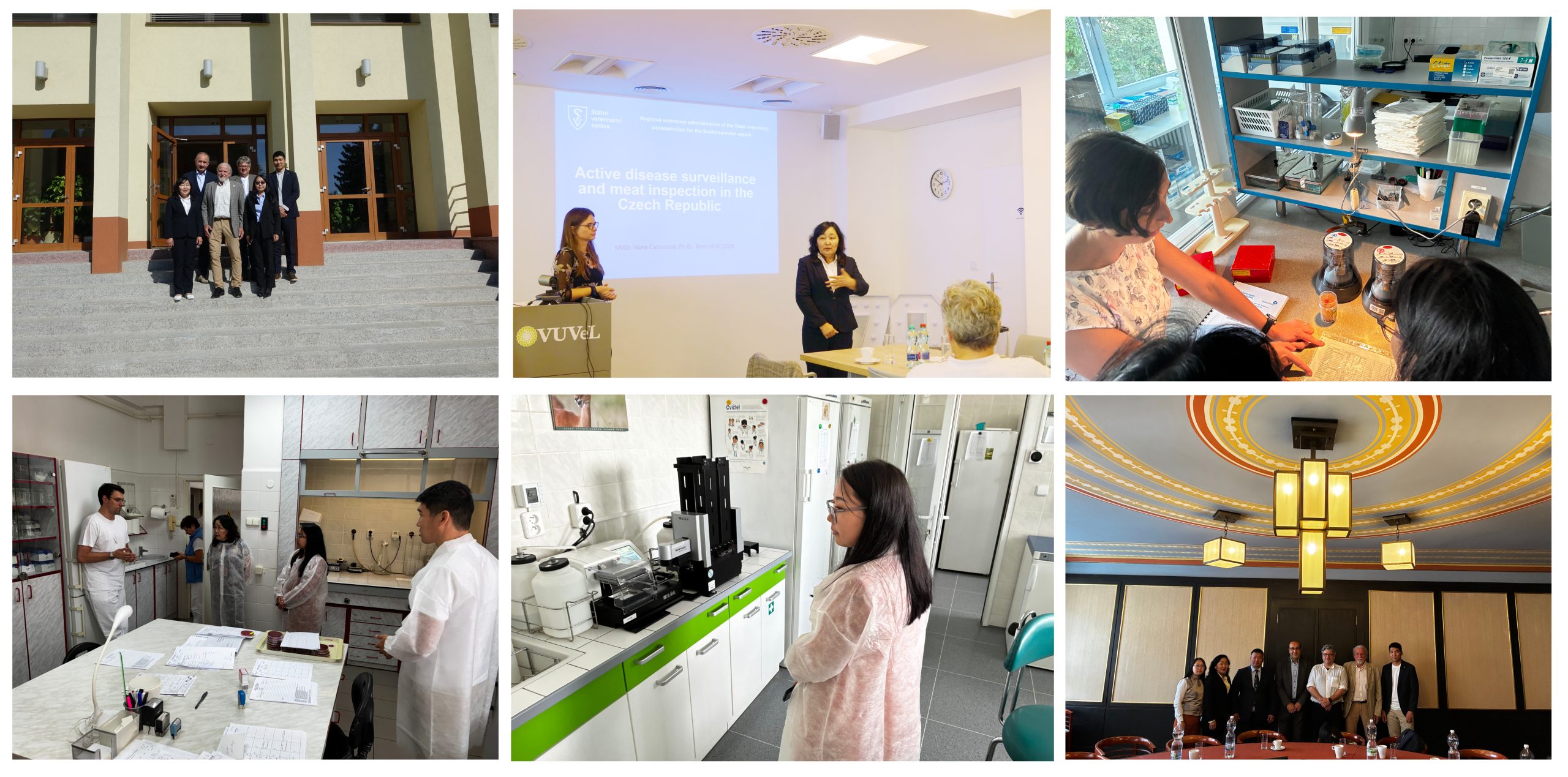From 13 to 17 July 2025, the Veterinary Research Institute (VRI) welcomed four experts from Mongolia as part of the Ministry of Industry and Trade project “Supporting Mongolia’s integration into the global trading system,” which is implemented under the Aid for Trade programme. The initiator and main international partner of the project is the Mongolian Institute of Veterinary Medicine.
The aim of the project is to contribute to strengthening Mongolia’s veterinary infrastructure and increasing its export capacity, especially in the field of animal production. The main objective is to analyse the current situation and define specific needs in collaboration with Czech institutions. “We aim to develop rapid diagnostic methods for control of infectious diseases in meat, particularly from sheep and goats, that are transmissible to humans, and to meet international and legislative requirements for meat export,” said Prof. Badgar Battsetseg, Director of the Institute. Effective diagnostics will contribute to eliminating barriers to the export of meat and meat products from Mongolia to Middle Eastern markets. “Mongolia currently exports mainly lamb meat and mutton on an occasional basis to Qatar, Kuwait, and other countries. Our goal is to gain additional long-term partners from the Gulf region and expand our exports,” said Dr. Basan Batsukh of the Mongolian State Veterinary Administration
The primary goal of the visit, as the initial phase of the project, was to introduce representatives of the Mongolian State Veterinary Administration and the Veterinary Research Institute in Ulaanbaatar to the Czech system of veterinary supervision over the safety of food of animal origin. The Czech Republic, through VRI, is sharing valuable know-how with Mongolia and providing technological support in the development of diagnostic tools. These tools represent a key element in establishing an effective animal health control system. They support the eradication of communicable diseases from affected areas and enable compliance with export certification requirements for meat on international markets.
VRI’s involvement in the project includes applying its expertise in the development of diagnostic kits that enhance the efficiency of detecting specific pathogens. One of the project outcomes will be a prototype diagnostic kit designed for a selected pathogen, contributing to more effective control measures. Another important benefit is the establishment of collaboration in the field of antimicrobial resistance — its detection, monitoring of occurrence, and joint efforts to find solutions. This issue is currently one of the key challenges for both human and veterinary medicine and has a direct impact on public health as well as international trade.
VRI representatives prepared a varied specialist programme that included lectures, practical demonstrations, visits to farms and slaughterhouses, and individual consultations with researchers. “During the stay of the Mongolian experts, we aimed to present our health control system of animals for meat production in its full scope — to familiarize them with Czech veterinary surveillance, animal health control methodologies, vaccination strategies, and the development of modern diagnostic tools,” said Jan Bernardy, the project’s expert supervisor and a member of the VRI organizing team.
We extend our sincere thanks to the State Veterinary Administration for the South Moravian Region; Steinhauser, s.r.o.; ZD Skály, agricultural cooperative in Benešov u Boskovic; the Central Veterinary Administration of the State Veterinary Administration, in Prague; and the State Veterinary Institute in Jihlava for their helpfulness, professional cooperation, and active assistance in the execution of the visit programme. “The involvement of these partners from practice significantly contributed to the professional quality and smooth running of the entire event,” added Jan Bernardy.
The visit represented an important step towards strengthening international cooperation in veterinary science, food safety, and supporting export. The visit was preceded by intensive project preparation, led by Ildikó Csölle Putzová: “The involvement of the entire team was essential — from booking flights and arranging accommodation to organizing visits to farms and other facilities, especially in light of concerns following the recent FMD threat. The project also opens up new opportunities for long-term partnership between the Czech Republic and Mongolia in capacity developing and enhancing the quality of food inspection. "If this approach proves effective in classifying certain regions of Mongolia—such as the central and western aimags or the capital city, Ulaanbaatar—as safe for export, it would not only facilitate international trade, but also contribute to improved animal health and Mongolia's overall public health situation," said Arnošt Marks, a team member and expert on the Mongolian economy and pastoralism. With this, VRI reaffirms its role as a key partner in international specialized projects focused on animal health and the export potential of partner countries.



